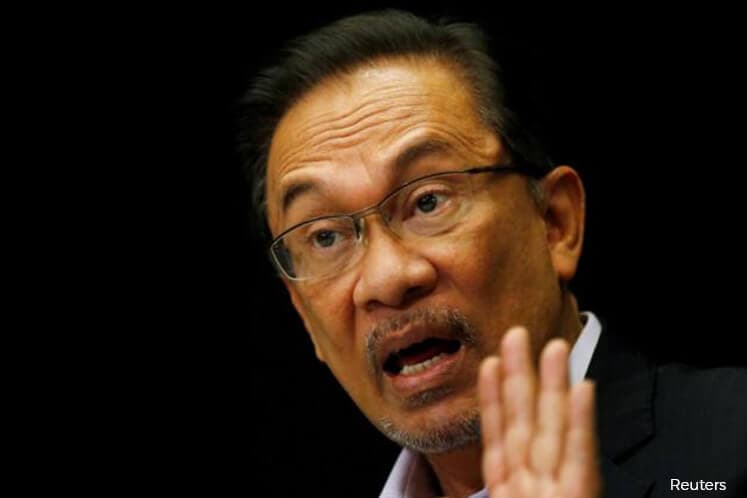
PUTRAJAYA (Sept 7): Former Deputy Prime Minister Datuk Seri Anwar Ibrahim denied that he failed to inform the Cabinet of the entire losses incurred as a result of foreign exchange trading by Bank Negara Malaysia (BNM).
Fielding questions from a five-man panel in the Royal Commission of Inquiry (RCI) into the 1990s forex scandal, Anwar, who was the finance minister between 1991 and 1998, said he was aware of the huge losses amounting to RM9.5 billion in 1993.
"I was bound by BNM's Annual Report 1993 (AR 1993) that was audited by the auditor-general. It showed losses of RM5.7 billion (incurred in 1993) which was stated as deferred expenditure," he said.
The total loss from the central bank’s transaction for that year was RM15.29 billion but RM9.5 billion was transferred to the exchange rate fluctuation reserve account with the remaining RM5.7 billion was capitalised as deferred expenditure, to be amortised over a number of years.
The RCI panel claimed that Anwar failed to tell the Cabinet of BNM's forex losses of RM12.35 billion in 1992, RM15.29 billion in 1993, and RM3.86 billion in 1994 despite knowing about it.
"I cannot use a contentious, false or draft report and inform the Cabinet or Parliament about the actual losses unless it is audited. (Anyway), the Cabinet was aware of the losses, if they didn’t know then they were sleeping,” he said.
The animated session involved Anwar bantering with panel chairman Tan Sri Mohd Sidek Hassan who said the Cabinet was not aware of the losses.
Anwar, dressed in a grey suit, took the stand at 2pm. His wife and PKR president Datuk Seri Dr Wan Azizah Othman was in the gallery along with former Prime Minister Tun Dr Mahathir Mohamad.
Earlier, Anwar said he was alerted to the losses in 1992 through a letter by then Auditor-General Tan Sri Ishak Tadin.
“When I asked BNM governor Tan Sri Jaffar Hussein then, he played down the losses saying it was not much and that it was due to the Plaza Accord and the pound sterling crash,” he said.
“Actually, I was a little concerned and annoyed as the Treasury was not informed of this and Jaffar was taking his time to tell me because he thought it was premature and didn’t want to report as it might have been confusing and inaccurate,” he said.
Anwar added that the share buyback of Tenaga Nasional Bhd (TNB) and Telekom Malaysia Bhd (TM) in the 1990s was to stop Bank Negara Malaysia from falling further into losses.
He said despite an end to foreign exchange (forex) trading in 1992, losses were still affecting BNM and the central bank was said to be insolvent.
Anwar said his ministry made the decision after meeting with the Treasury Department, Auditor-General and BNM in December 1993.
“After I put a stop to forex trading, losses were still being incurred and the answer given then was 'forward position’. I was fed-up of forward position because it would never end, so we needed a cut-off point.
“According to BNM deputy governor Tan Sri Lin See Yan, if BNM was insolvent, the entire banking system would have been affected. Hence, the decision to transfer shares from TM and TNB to inject capital into BNM to cover the losses,” he said.